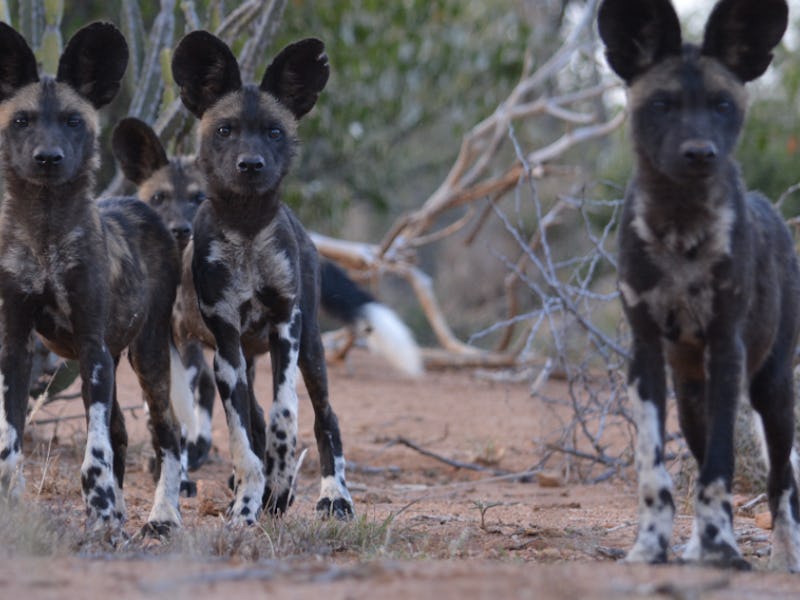Democracy Is Biological, Conclude Scientists Studying Wild Dogs
The dogs even have a voting system.

When humans sneeze, it’s a reflex that’s meant to expel irritants that have infiltrated the epithelium of the nasal passage. But when an African wild dog sneezes, it’s an act of democracy. More sneezes mean more votes, say scientists in a new study, and when the sneezing stops, the ballot booths close.
In a paper published Wednesday in the Proceedings of the Royal Society B, an international team of Botswana Predator Conservation Trust scientists explain how they came to realize that the sneezes of Lycaon pictus, the wild dogs, were more than just sneezes. As they analyzed recordings from 68 social rallies — the high-energy greeting ceremonies that the dogs hold before moving as a pack — from five different packs, they realized that all that sneezing represented the dogs voting on whether or not they should leave.
“The more sneezes that occurred, the more likely it was that the packed moved off and started hunting,” senior author Neil Jordan, Ph.D., said in a statement. “The sneeze acts like a type of voting system.”
The scientists found that the spirit of democracy was strong among the dogs, even when their leaders were around. When the dominant male and female of the pack were present during a social rally, the rest of the pack would exchange only a few sneezes before moving. But if the dominant pair wasn’t there, then they would sneeze up to ten times before leaving. This indicated to the scientists that “the ‘will of the group’ may override dominant preferences when the consensus of subordinates is sufficiently great.”
In previous studies, L. pictus has been suspected of having group decision-making processes, and its communities are characterized by an “open social system” defined by pervasive cooperation. This study, however, is the first to systematically investigate how the dogs’ collective decisions are actually made.
“We found that sneezes, a previously undocumented unvoiced sound in the species, are positively correlated with the likelihood of rally success preceding group movements and may function as a voting mechanism to establish group consensus in an otherwise despotically driven social system,” the scientists write.
African wild dogs are also, coincidentally, very cute.
These good boys of Africa are not the only animals that have a democratic-like social system. Bees, for example, choose the best site for a new hive by taking into account information collected by numerous “scout bees”. Deer, meanwhile, only decide to move to a new location when up to 60 percent of the herd is on their feet. Even pigeons get a vote when it comes to making the next flight and who will lead the flock.
In the paper, the authors point out that “group consensus is ubiquitous in social invertebrate and vertebrate animals, and is necessary for individuals to reap the benefits of group living — including added protections from predators, greater information sharing, and better defense of resources.”
Democracy is pretty wild, y’all.